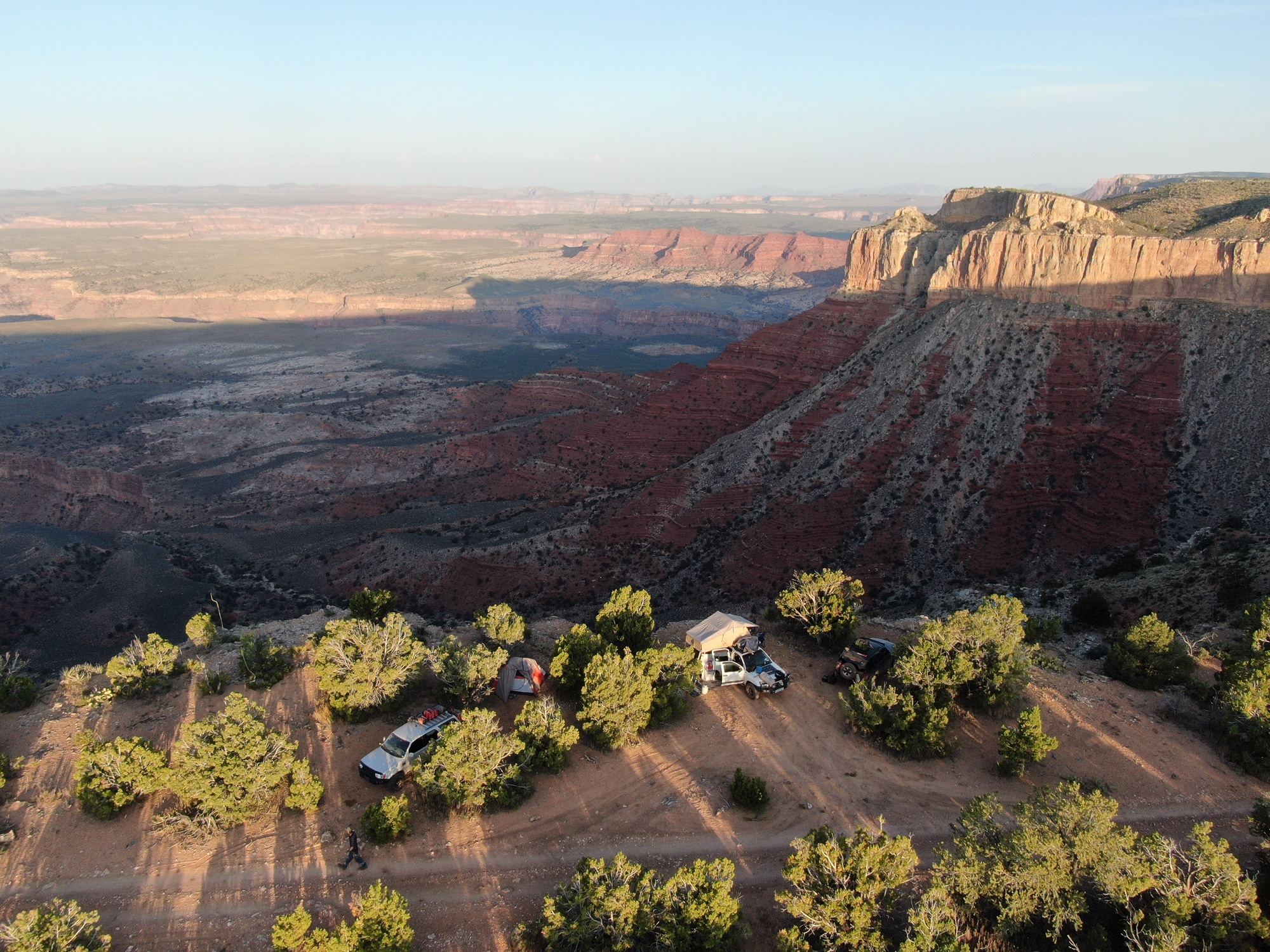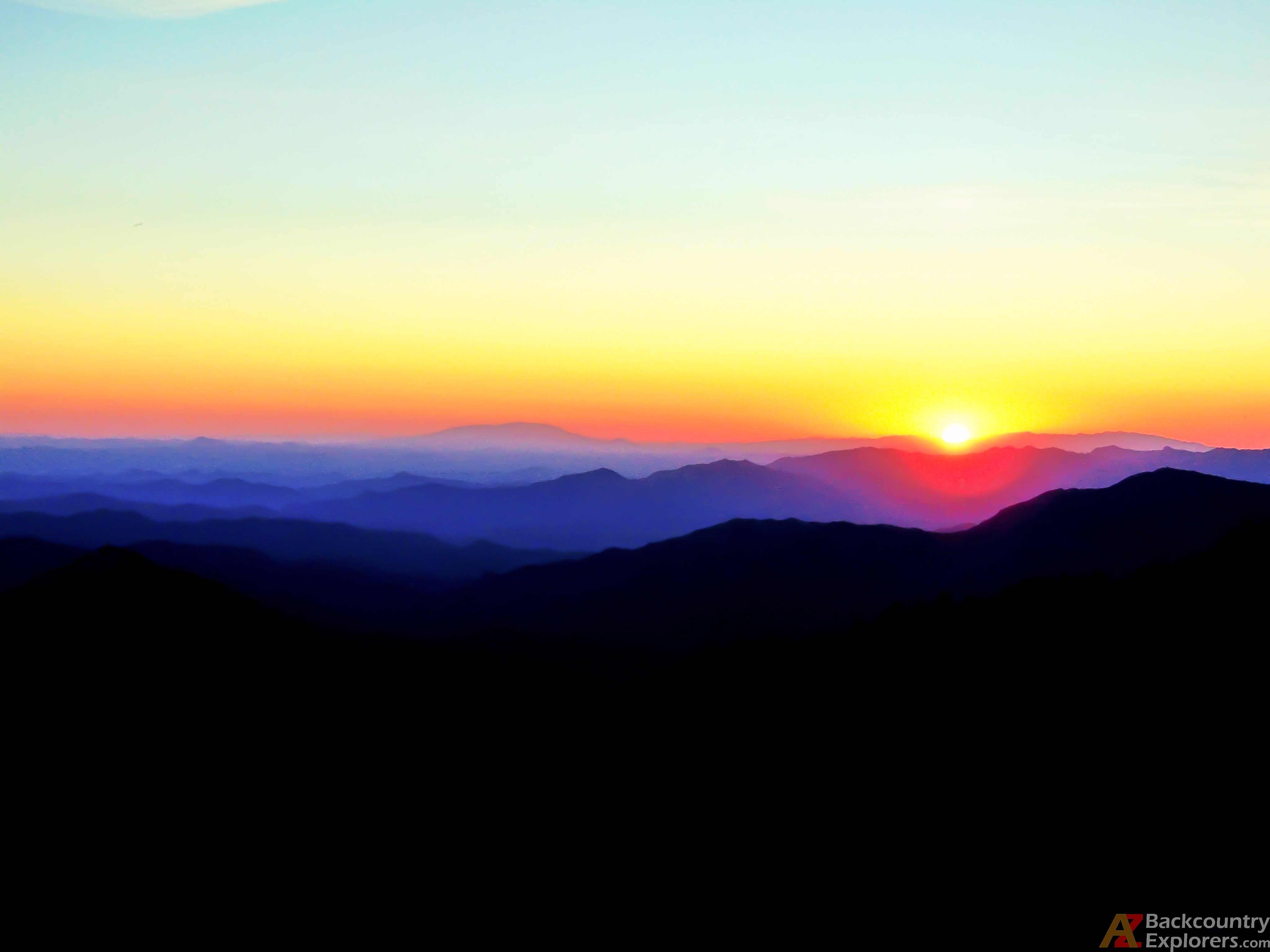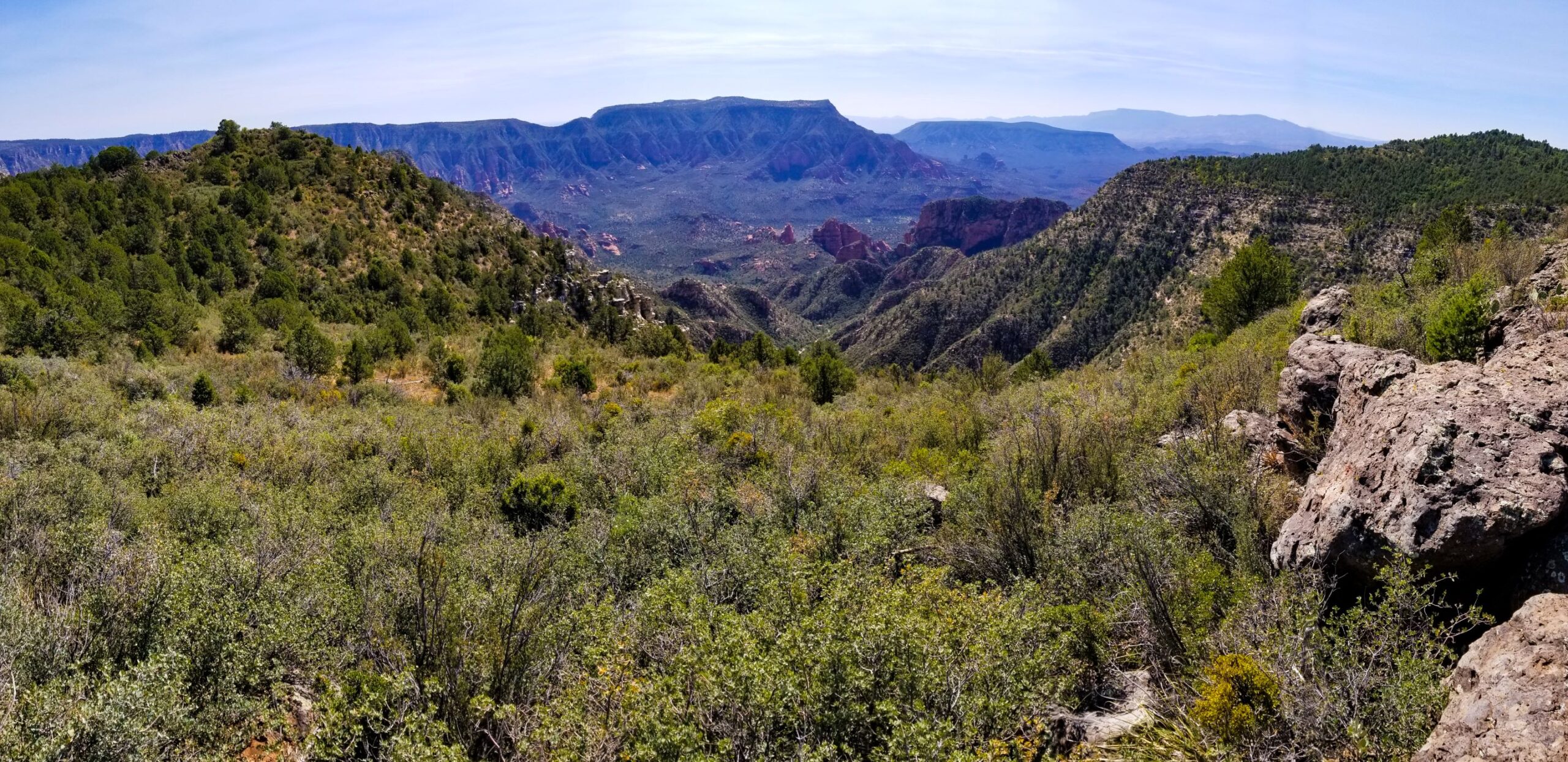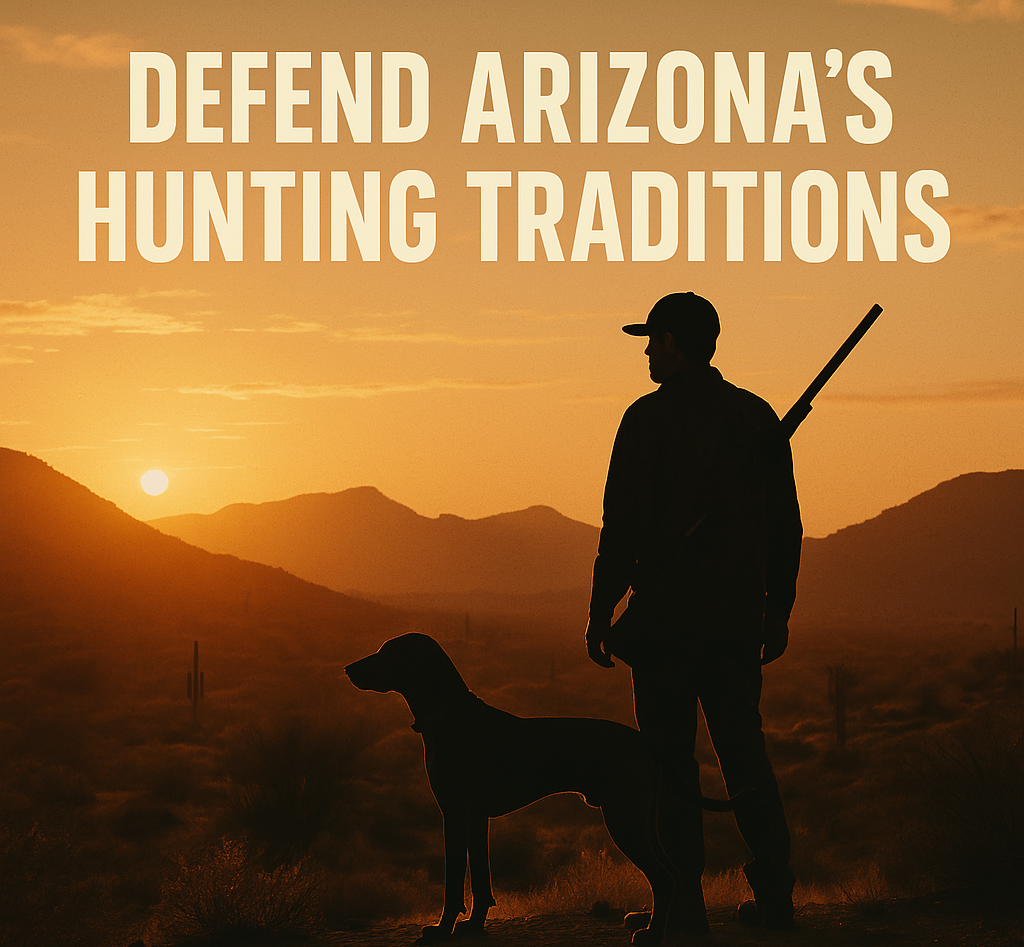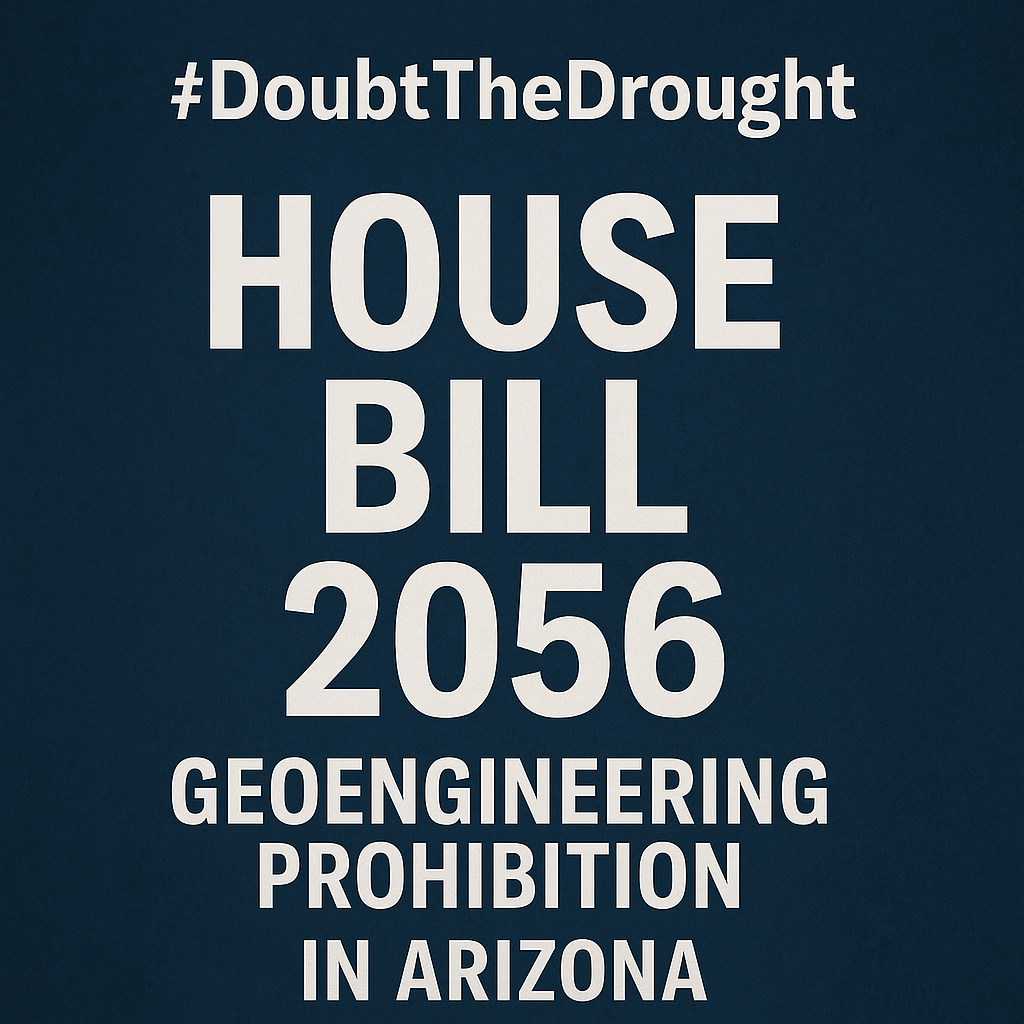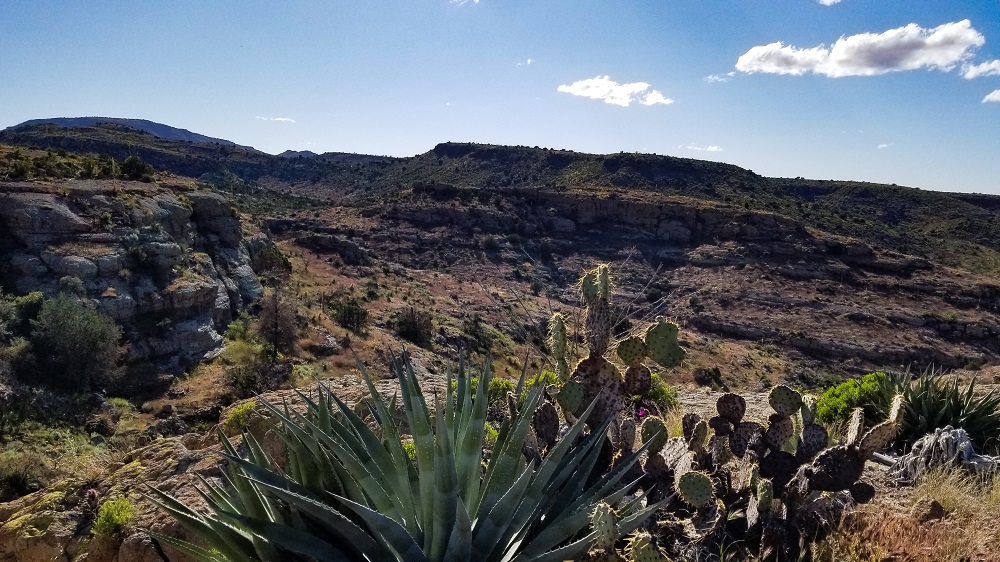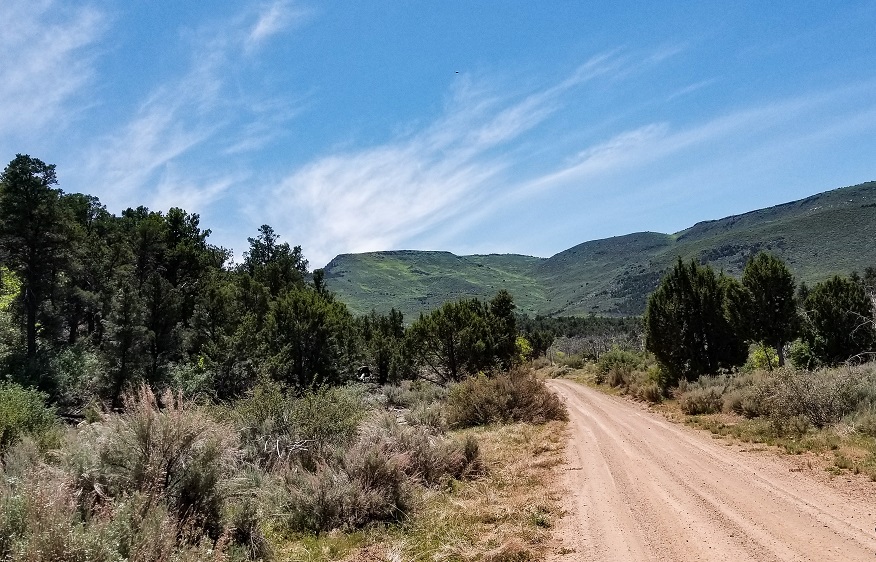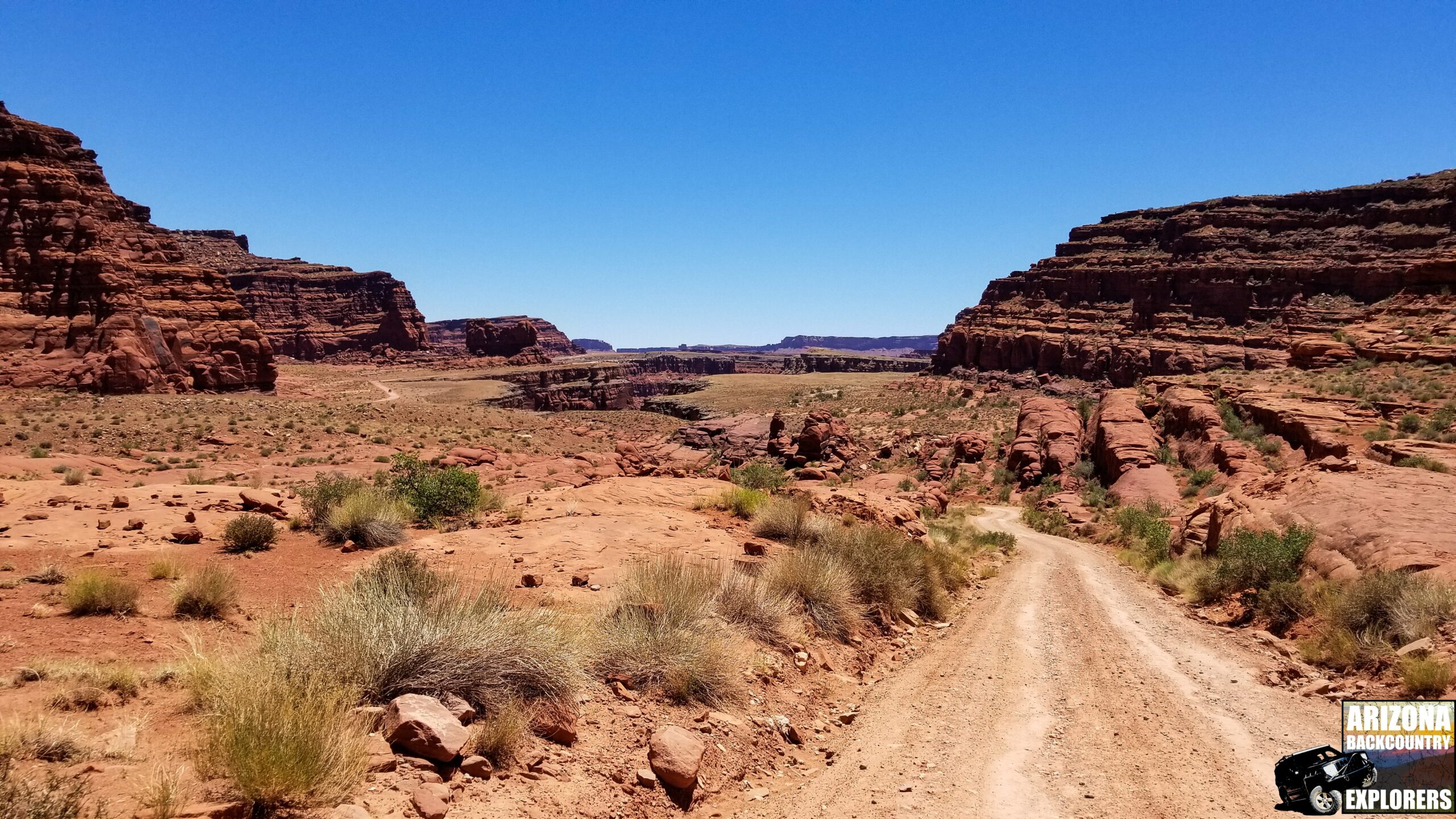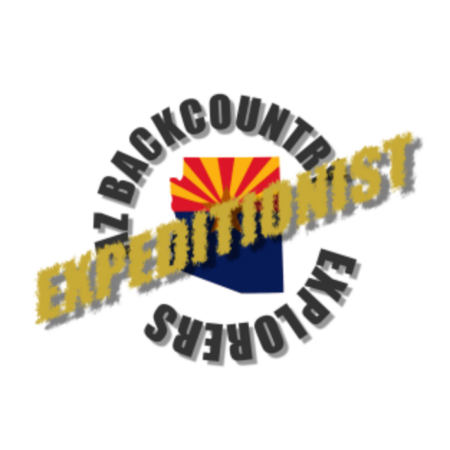Your cart is currently empty!
Posted in
Time is running out!
These Bills are moving quickly through the state legislature and need your attention immediately! Please make the time to read the proposed laws and voice your opinion!
Four new state laws meant to govern OHVs are advancing through the state legislature with bipartisan support. These new laws aim to redefine what an OHV is and govern how OHVs are operated in Arizona. Introduced by the Republican-dominated state legislature, the new OHV laws will change multiple sections of the Arizona Revised Statutes relating to driver’s license requirements, open container laws, license tax, temporary registration, and more to tighten up provisions governing motorized OHV use of public lands.
Background and influence
The proposed laws are part of multiple failed attempts by a collaborative of anti-access organizations and government officials in response to highly publicized OHV issues in the Sedona area. Working through various front groups, this collaborative of anti-access organizations, federal, state, county, and city officials, and state legislators are working to change state laws to appease a handful of disgruntled Sedona residents over unproven OHV impacts.
Their stated goal is to close or strictly limit motorized use of public lands around Sedona and the Verde Valley. They have been on a relentless crusade to end or severely limit motorized use of what roads are still open on Coconino National Forest land around Sedona. They have tried everything from pressuring the Forest Service to introduce permit systems on popular trails like Broken Arrow, to attempting to regulate 4×4 businesses with zoning regulations while comparing them to adult sex shops. Their efforts also include a proposed city ordinance that would prohibit the use of non-DOT approved aftermarket equipment within Sedona city limits and employ “citizen aides” to write tickets for violations and impound vehicles for inspection.
Their efforts are bolstered by the cooperation of several Republican legislators who have used their lawmaking authority to attempt to advance anti-access efforts that will impact motorized use of all 24 million acres of public lands in Arizona. An array of similar bills were introduced over the last three years to change the OHV weight limit, require an education course, restructure the OHV fund to pay for restoration projects on private lands damaged by OHV use, and reallocate funding from the OHV fund to the Sheriffs department for enforcement efforts.
Sedona, Arizona residents claim OHV users are operating with poor etiquette. However, there is no evidence to support their claims. According to official studies conducted by the US Forest Service, 4×4 tours and rental businesses make up the majority of 4×4 traffic on the surrounding trails, not the general public. 4×4 tour companies even enjoy exclusive access to some trails. While the majority of motorized roads in the area are closed to the public by forest order and travel management, studies suggest there is no environmental impact caused by OHV use of the remaining trails, as Sedona residents claim. The U.S. Forest Service, Sedona PD, and the Yavapai County Sheriff’s Office have also conducted many targeted enforcement missions, only to encounter respectful operators.
The OHV issues in Sedona have gained national media attention with documentaries, media interviews, and newspapers depicting false and misleading messages to purposely damage the public perception of the 4×4 community. These propaganda efforts are using the alleged poor actions of tourists and squatters in an attempt to restrict public use of existing roads and to restrict dispersed camping on national forest lands.
The facilitators
An environmental consulting and facilitation firm called Southwest Decision Resources has been employed by the City of Sedona, Arizona State Parks and Trails, and Arizona Game and Fish to facilitate cooperation between OHV businesses, non-governmental organizations, Yavapai County, the US Forest Service, and state legislators. Together, they have developed multiple front groups and are vocal about changing state laws to eliminate or strictly regulate motorized access to National Forest land around Sedona.
Some of the Groups created by Southwest Decision Resources includes Keep Sedona Beautiful and the Verde Front Collaborative. This effort also includes the Sedona Chamber of Commerce, Red Rock OHV Conservation Crew, TreadLightly! and environmental organizations. They’ve placed obstructions to block roads and campsites, car counters on popular 4×4 trails, installed surveillance cameras, and have repeatedly failed to show any negative impact by motorized public land users.
NOTE: Southwest Decision Resources was also employed by the city of Tuscon to facilitate listening sessions relating to Tuscon’s 15-minute city climate action plan.
Arizona OHV Study Committee
Out of the many bills introduced in the past 3 years to govern OHV use, the only law that passed established an OHV Study Committee to make recommendations for legislative action. The study committee consists of multiple Sedona interests that are involved with anti-access efforts in the Sedona area.
Members of the study committee testified in front of the legislature asserting their opposition to passing the bill without waiting for the recommendations of the committee report.
Members of the study committee:
- DeAnna Bindley – Sedona, Arizona Resident (public member knowledgeable about outdoor recreation issues, appointed by the President of the Senate)
- Becki Ross – Sedona, Arizona Cattle Rancher (public member knowledgeable about outdoor recreation issues, appointed by the President of the Senate)
- Chris Judson – Vice President of Polaris Off Road Utility (representative of off-highway vehicle manufacturer or retailer, appointed by the Speaker of the House of Representatives)
- Matt Caldwell – Tread Lightly! (representative of off-highway vehicle organization or recreational group, appointed by the President of the Senate)
- J.C. Sanders – Arizona Peace Trail (representative of off-highway vehicle organization or recreational group, appointed by the Speaker of the House of Representatives)
- Shawn Clark – Happy Trails Adventure Company of Arizona (representative of off-highway vehicle rental company, appointed by the President of the Senate)
- John Koleszar – Arizona Deer Association (representative of an organization representing hunting, fishing, or similar outdoor sports activity, appointed by the Governor)
- Benny Aja – Coconino County Farm Bureau – President (representative of farming and agriculture industry, appointed by the Governor)
- Bob Broscheid (Director, Arizona State Parks Board or designee)
- Ty Gray (Director, Arizona Game and Fish Department or designee)
- David Rhodes – Yavapai County Sheriff (law enforcement officer enforcing off-highway vehicle laws, appointed by the Governor)
- Jennifer Toth (Director, Department of Transportation or designee)
- Vacant (Commissioner of the State Land Department or designee)
One Sedona resident sitting on the Study Committee has threatened physical harm to employees of OHV businesses in Sedona and has been on a mission to damage their reputation while claiming that dust from traffic driving down Forest Road 525 is creating “zero visibility dust clouds” that are killing trees and destroying petroglyphs. Another Committee member holds a grazing lease on Coconino National Forest land around Sedona.
Another notable study committee member is a representative of Polaris, whose lobbyists from the Recreational Off-Highway Vehicle Association are pushing to increase the OHV weight limit to 3,500 lbs under SB 1052. They are doing this to accommodate upcoming electric UTV models that exceed the state’s OHV weight limit so they can curtail US automotive safety standards. To convince Democrat lawmakers to support the weight increase, Republicans admit this will include additional motor vehicles in the OHV program, thereby increasing OHV funding.
The proposed laws
Below is a list of all the proposed laws with a summary of each bill and “Read More” buttons leading to detailed breakdowns of each law that include the actual text of the proposed changes. Each detailed breakdown is important because it gives context to the entire situation. In these detailed breakdowns, we will include contact information for the sponsors of each bill.
We encourage you to read each law and reach out to legislators in your district and sponsors of these bills to voice your opinion. We encourage taking a moment to call the Governor’s office to urge a veto and sign up to speak in front of the legislature on behalf of motorized interest.
Senate Bill 1055
Senate Bill 1055 was introduced by Republican Senator Sine Kerr, district 25, and aims to extend the duration of the Arizona Off-Highway Vehicle (OHV) Study Committee for an additional year.
- Extends the duration of the Study Committee until May 31, 2025, providing an additional year for the committee to fulfill its objectives.
Senate Bill 1567
Senate Bill 1567 was introduced by Republican Senator Sine Kerr, district 25, and will amend sections 4-251, 28-1171, 28-1174, 28-1179, and 28-3151 of the Arizona Revised Statutes. The proposed legislation will modify and add provisions relating to OHVs in Arizona.
- Driver License Requirement: Operating an OHV without a valid driver’s license will be prohibited.
- Alcohol Prohibition: The bill extends the prohibition of consuming alcohol in motor vehicles to include OHVs.
- Safety Measures for Minors:
- Minors under 18 must wear protective helmets while operating or riding in an OHV.
- Restrictions are placed on allowing minors under 12 to operate OHVs, limiting them to designated areas and prohibiting reckless operation.
- Citation Protocol:
- Citations for OHV violations committed by minors under 12 will be issued to their parents or legal guardians.
- Minors aged 12 to 16 may receive citations themselves or have them issued to their parents or legal guardians, but not both.
- OHV Safety Education Course (OHV Course):
- Starting January 1, 2025, completion of an OHV Course would be required to obtain an OHV decal.
- The Arizona Game and Fish Department (AZGFD) will certify the course, which must include online options.
- A report on the course’s implementation must be submitted by December 1, 2026, with recommendations for further action.
- Modifies the definition of an OHV to include:
- a “recreational or utility side-by-side vehicle,” rather than a “utility vehicle”; and
- a “dirt bike,” rather than a “four-wheel drive vehicle.”
- Defines a dirt bike as a lightweight motorcycle that is designed for use on rough terrain, including unsurfaced roads or tracks.
- Miscellaneous:
- Definitions of “motor vehicle” and “OHV” are modified.
- “Dirt bike” is defined separately.
- Technical and conforming changes are made.
Senate Bill 1052
This Bill has been introduced by Republican Senator Frank Carroll, district 28, and cosponsored by Republican Senator Davin Farnsworth, district 10, and Republican Representative David Cook, district 8. The proposed bill will amend sections 28-101, 28-1177, and 28-5801 of the Arizona Revised Statute to increase the weight limit that defines what OHVs must purchase an OHV sticker and pay a vehicle license tax.
- Increase in Maximum Unladen Weight:
- The bill raises the maximum unladen weight of ATVs and off-highway vehicles subject to registration and vehicle license tax from 2,500 to 3,500 pounds.
- Modification of Definition:
- The definition of an ATV is revised to require a recreational nonhighway all-terrain vehicle to have an unladen weight of 3,500 pounds or less, rather than 2,500 pounds or less.
House Bill 2426
House Bill 2426 was introduced by Republican Representative Timothy Dunn, district 25, and will amend section 28-2156 of the Arizona Revised Statute. The bill aims to allow the issuance of a 30-day temporary general use registration for nonresidents owning off-highway vehicles (OHVs) titled in another state.
- Temporary Registration Authorization:
- Arizona Department of Transportation (ADOT) can issue a temporary general use registration to nonresidents owning OHVs titled in another state, provided they meet statutory requirements.
- Exemption from Registration Limitation:
- Excludes nonresident OHV temporary registrations from the limitation of one 30-day registration within a 12-month period.
- Definition of OHV:
- Specifies the characteristics of an OHV, including design for recreational off-highway travel, weight, tire count, steering wheel presence, rollover protective structure, and occupant retention system.
Read more on the Sedona Issue
ACTION ALERT | SB1567 Proposes Sweeping Changes to Arizona OHV Laws
Senate Bill 1567, sponsored by Senator Sine Kerr, revises Arizona’s legislation on off-highway vehicles (OHVs). It mandates driver’s licenses for OHV operators, bans alcohol consumption, requires safety education, and introduces strict safety protocols for minors. Amendments include redefining OHVs and specifying age-related operation restrictions. It passed the Senate on February 15, 2024.

ACTION ALERT | City of Sedona proposes ban on aftermarket equipment within city limits
The Sedona City Council has proposed a city ordinance that will prohibit the use of motor vehicles and decimate small business within city limits. Minute AB 2950 at the City Council’s May 23, 2023 meeting introduced discussion regarding an amendment to title 10 of the city code that adds chapter 10.30 Improper Motor Vehicle Equipment.

RED ALERT | Additional 31,000 Acres Added To Sedona Camping Closure (81k Acres)
The Coconino National Forest has issued a forest order to initiate camping prohibitions and permanent fire restrictions west of Sedona Arizona on an additional $31,000 of public land.
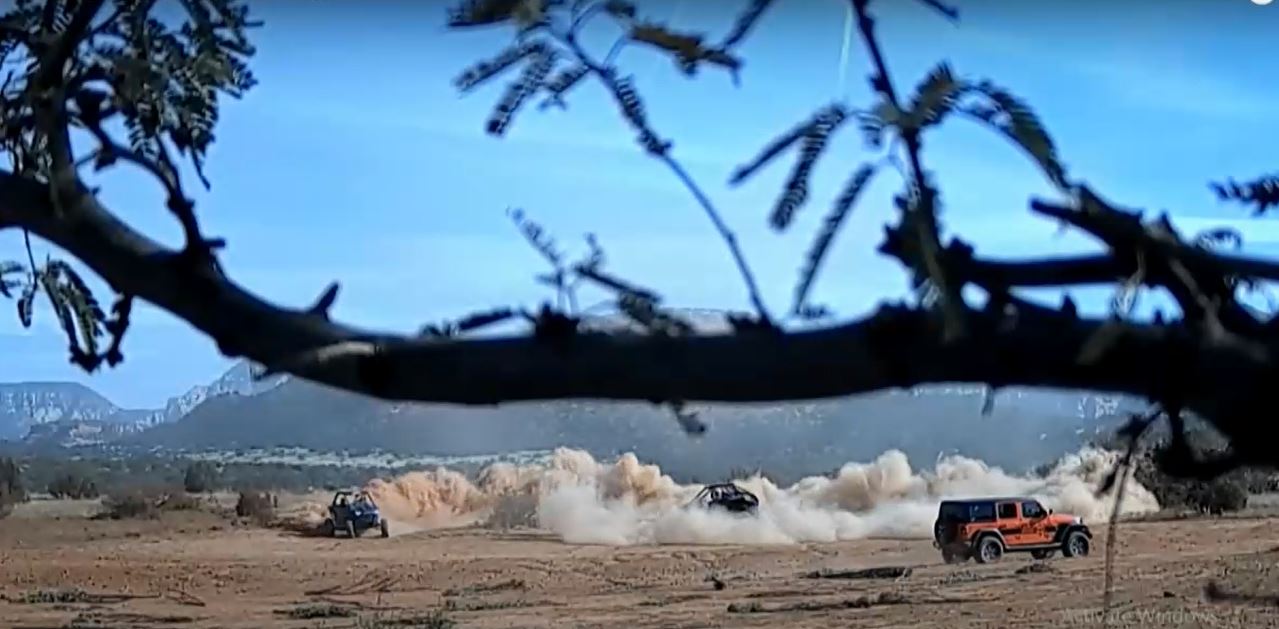
SB1377 | Massive changes to the Arizona OHV fund
There is an organized effort by anti-access groups to convince our lawmakers to close motorized access to public lands because of a handful of novice users in rental UTVs around Sedona. It’s clear that our lawmakers do not understand how responsible and respectful the majority of the 4×4 community is. We must respond with the…
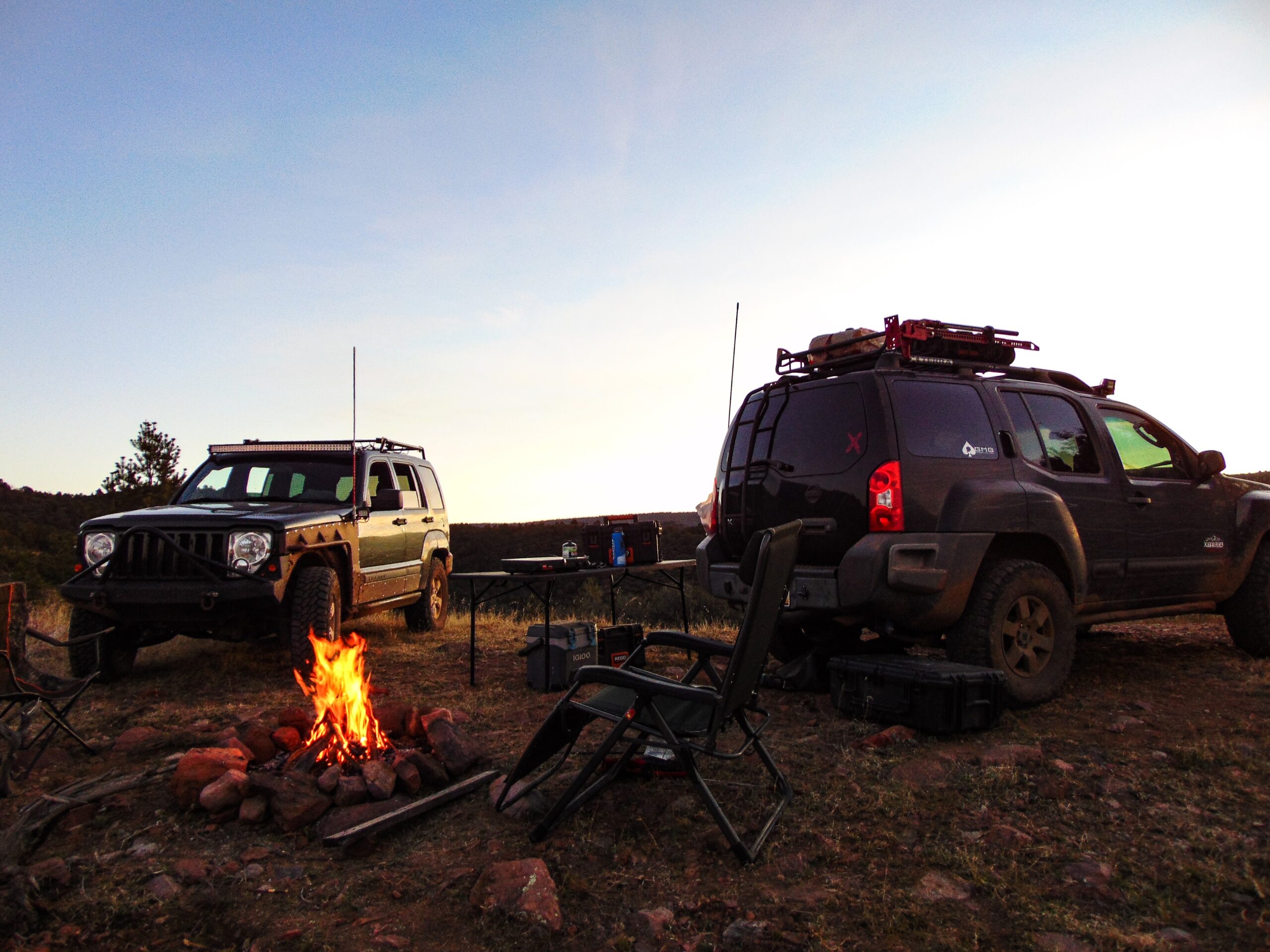
Correction! | ACTION ALERT | Proposal Prohibits Dispersed Camping in the Verde Valley
Dispersed camping around Prescott, Arizona is threatened by an organization who represents cities and towns outside of Prescott. Please Take Action Now!
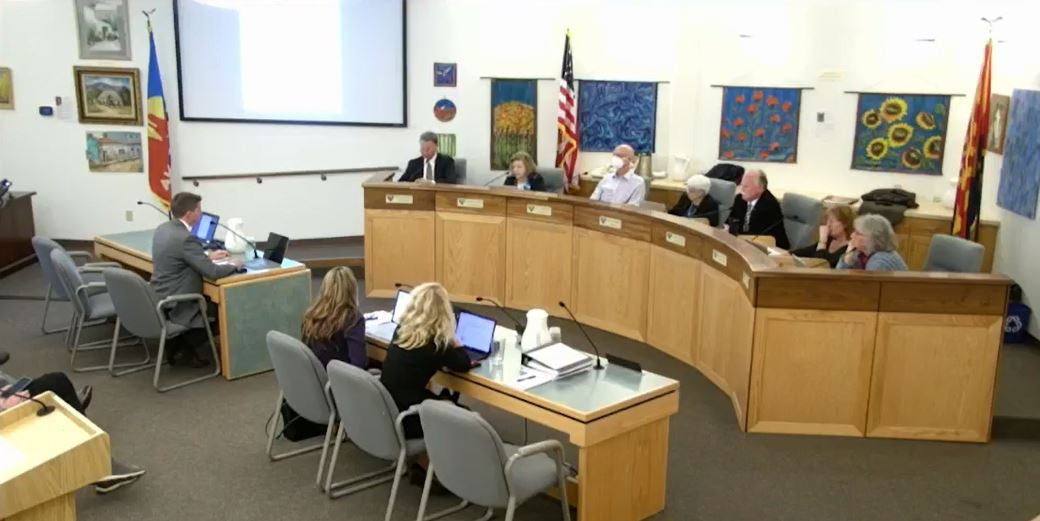
Sedona City Council in favor of restricting access
At a Sedona City Council meeting, members debated with Forest Service officials on limiting off-highway vehicle (OHV) access in Coconino National Forest. Despite several Sedona residents’ concerns regarding noise and environmental damage, no action was taken. The council plans to conduct an Environmental Impact Statement before implementing any restrictions, opposing Forest Service wishes to maintain…
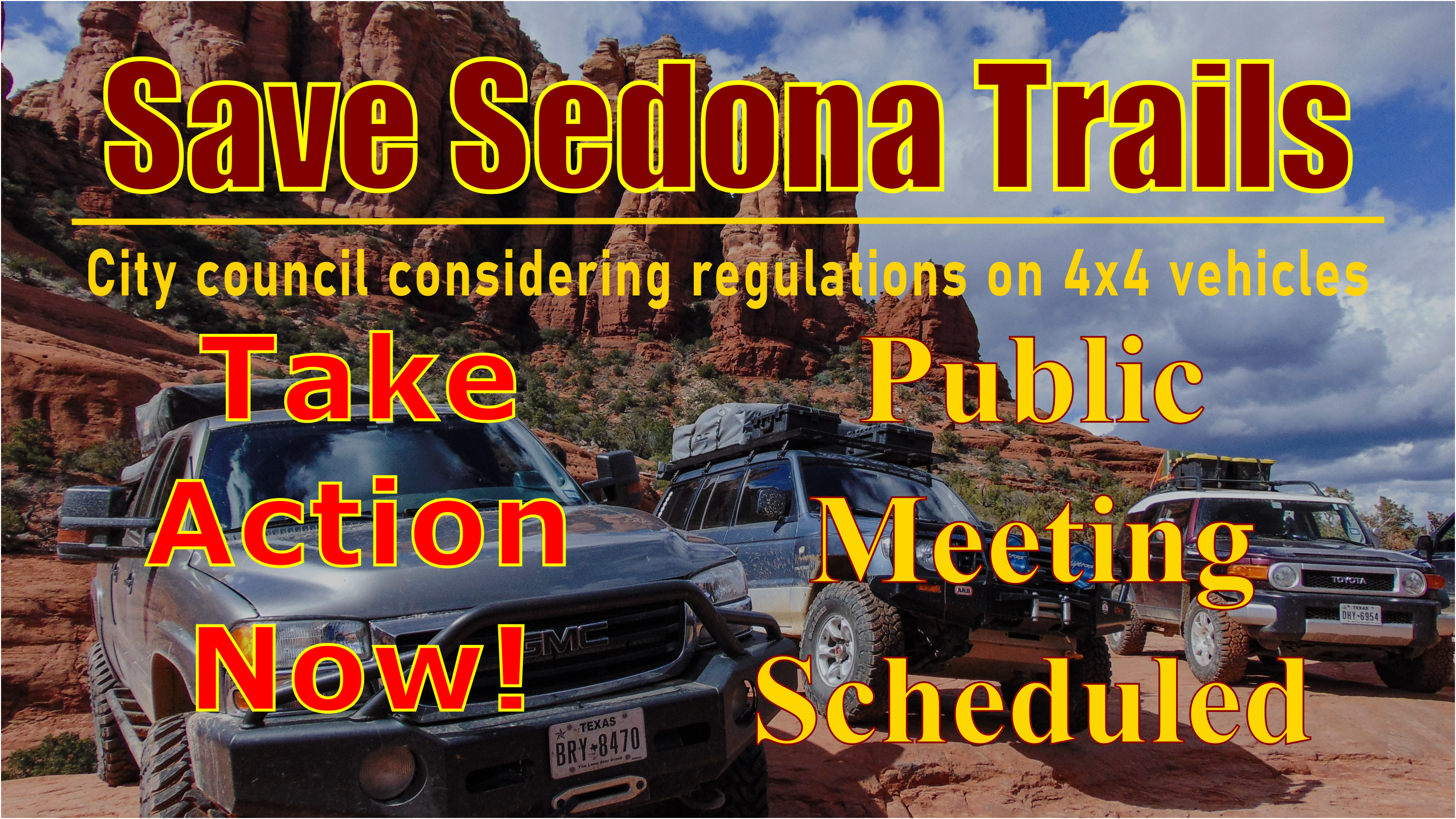
Action Alert | Contact the city of Sedona in support of motorized access
Sedona City officials propose regulating 4×4 use due to complaints and environmental concerns. Despite mitigation efforts by a local workgroup and $300,000 in OHV grants, issues persist. Critics contest the ecological impact, citing alternative causes for tree mortality. A significant tourism revenue source, OHV use faces potential strict regulation, with a public meeting scheduled to…
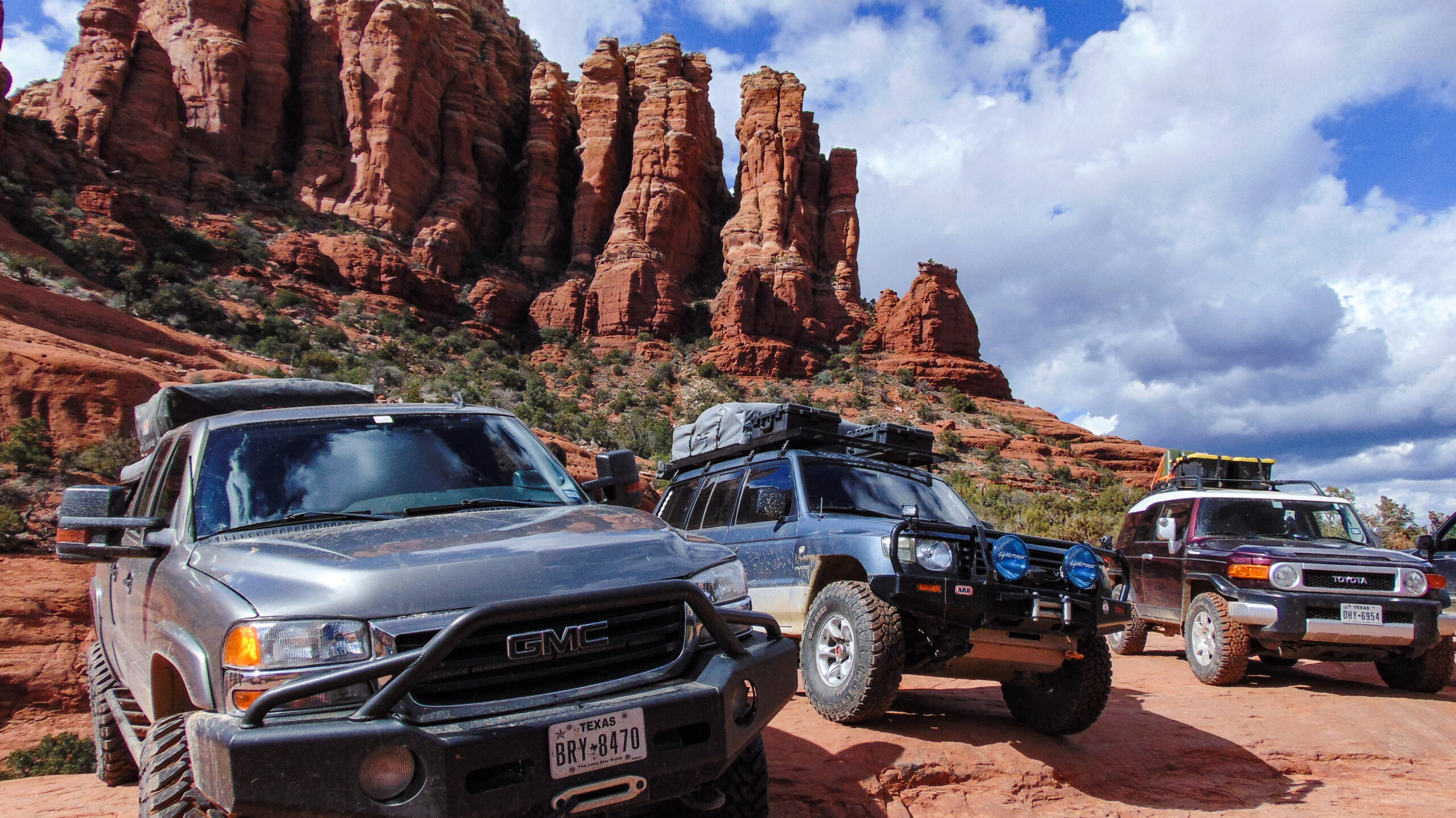
A twenty year prohibition on motorized access now lifted
Several forest orders in the Coconino National Forest expired on the first of the year. These forest orders have been holding many of northern Arizonas best 4×4 trails and campsites hostage. As far as we can tell, some of these roads are still open on the MVUM.
Tags:
You may also like…
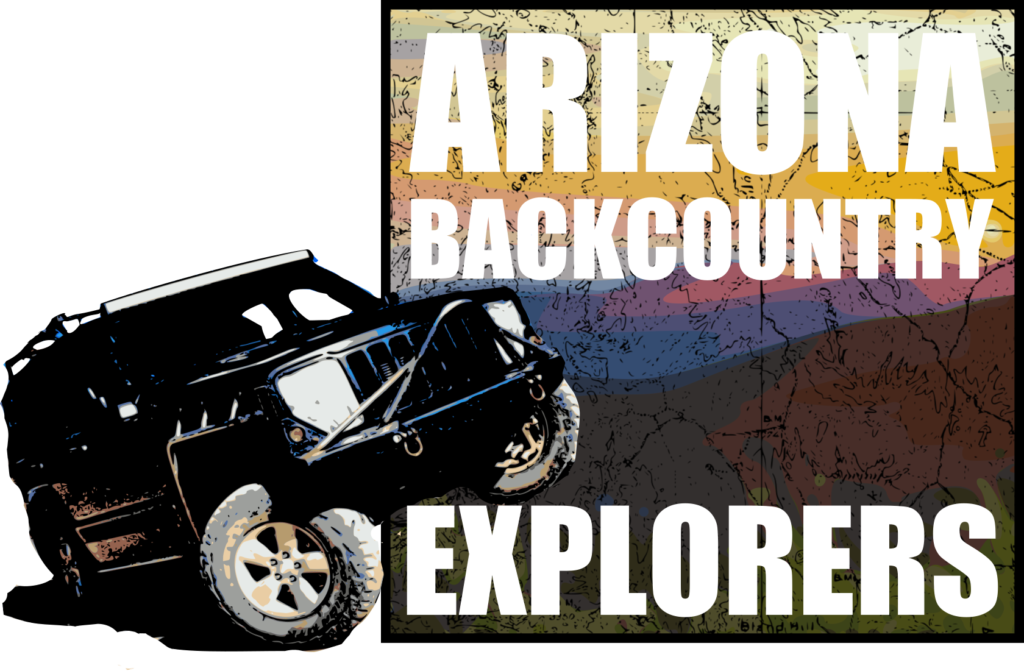
Visit the AZBackroads.com Store
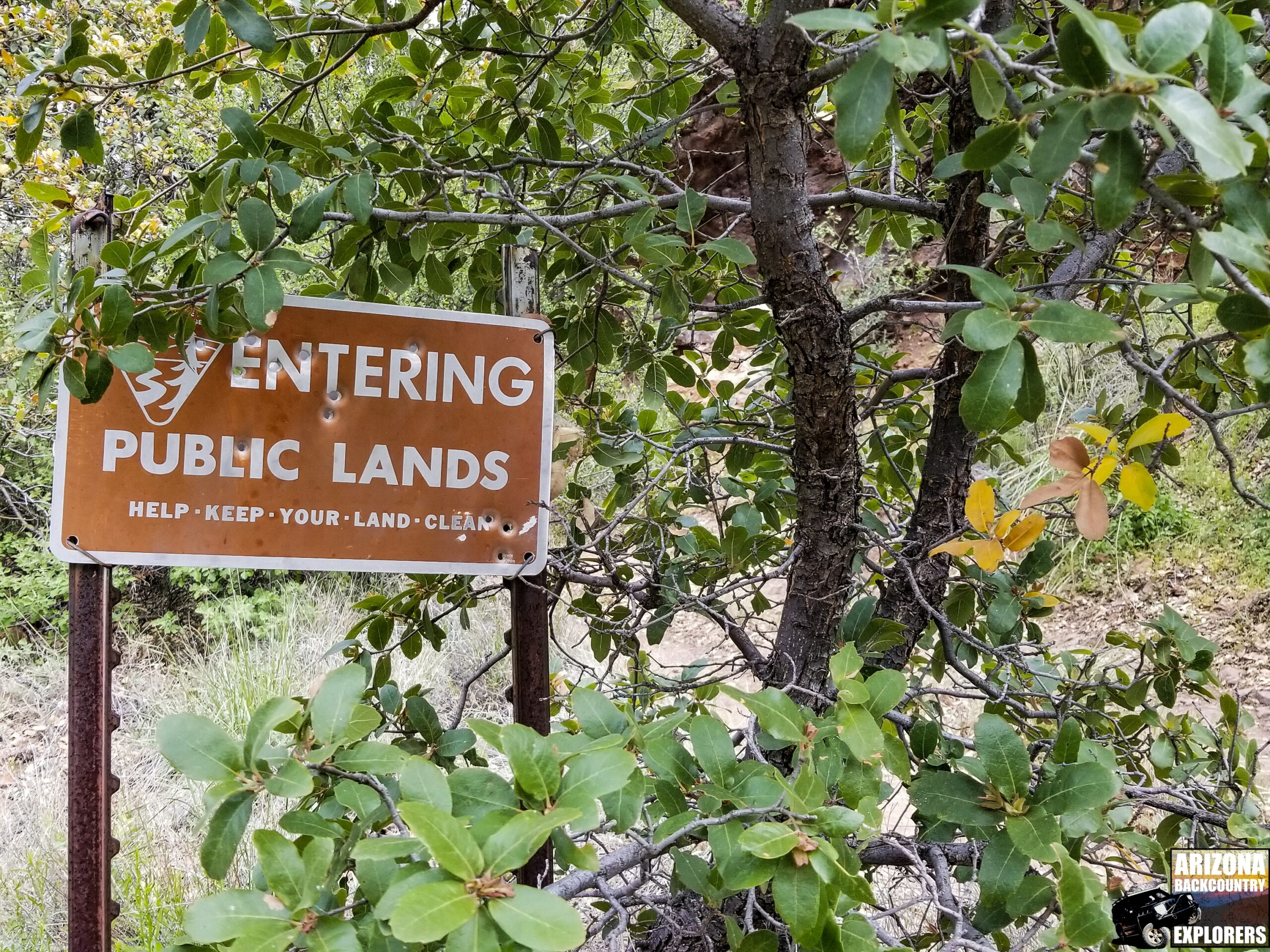
Please Become A Member
We need your help to keep our backroads open. Please join today!
